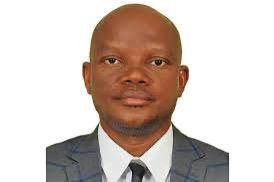
University professors across Nigeria have raised alarm over their worsening financial struggles, revealing how stagnant salaries and rising living costs have left many trapped in debt and forced into multiple side jobs.
Academics lamented that despite decades of service, their monthly pay—averaging around ₦500,000 ($366)—barely sustains them, with some resorting to loans for basic needs like school fees, transportation, and feeding.
ASUU National President, Prof. Emmanuel Piwuna, blamed the government’s neglect of higher education for the dire situation, warning that poor remuneration is crippling universities’ ability to attract and retain top talent. “Disregard for academics has dampened morale, reduced output, and made our universities unattractive,” he said.
Comparative data paints a stark picture: while a Nigerian professor earns about $4,400 annually, counterparts in South Africa ($57,471), Uganda ($50,595), and Kenya ($48,000) earn over ten times more. Even smaller economies such as Eswatini, Lesotho, and Gabon pay their professors significantly higher.
Prof. Adebowale Adejumo of the University of Ilorin revealed he has been forced into multiple loans to cover his children’s private university fees, lamenting that the value of academic labour has been “reduced to shameful levels.” Another professor in Enugu admitted he lives entirely on loans, saying, “The way people perceive professors outside is far from reality. Financially, we are struggling.”
Retired law professor Nnamdi Aduba added that heavy taxation and inflation have further eroded earnings. “After deductions, I was left with less than ₦400,000 monthly despite decades of service. Professors deserve at least ₦2 million a month to survive in today’s economy,” he argued.
Professors Azeez Olaniyan (Federal University, Oye-Ekiti) and Oluwatoyin Ogundipe (former Vice Chancellor, University of Lagos) also decried the situation, with Ogundipe disclosing that as a VC he earned ₦900,000 monthly—less than what some mid-level managers earn in the private sector. “Lecturers are tired, morale is low, and some even sleep in their offices,” he said.
Beyond personal hardship, the academics warned that the worsening pay crisis is discouraging young Nigerians from pursuing careers in teaching and research, a development they say could endanger the future of higher education in the country.
